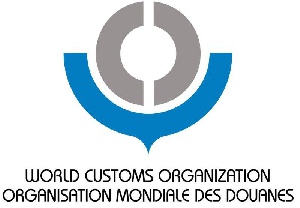- Home - News
- TWI News | TV
- Polls
- Year In Review
- News Archive
- Crime & Punishment
- Politics
- Regional
- Editorial
- Health
- Ghanaians Abroad
- Tabloid
- Africa
- Religion
- Election 2020
- Coronavirus
- News Videos | TV
- Photo Archives
- News Headlines
- Press Release
General News of Tuesday, 10 November 2009
Source: GNA
Customs Organizations resolve to tackle corruption
Accra, Nov. 10, GNA - Mr Ed Richard Kumah Lanyoh, Commissioner of Customs, Excise and preventive Service (CEPS), on Tuesday, urged customs institutions the world over to strive to exhibit the highest professional standards in the performance of their duties.
He said customs administrators in the 21st century should be mindful of their responsibilities to government, industry, travellers and the other stakeholders in both the public and private sectors. Mr Lanyoh said: "Our commitment must be exemplified by the quality of service we render, how innovative we are, our adaptability to change and how responsive and accountable we are to stakeholders." He was speaking at the first World Customs Organization (WCO) Regional Conference on Ethics and Good Governance for West and Central Africa, in Accra.
The three-day conference under the theme, "Ethics and Good Governance in Customs Administration," has brought together 14 customs heads and administrators from Togo, Benin, Nigeria, Cameroon and Ghana to deliberate on the theme.
The five countries form the regional working group on Ethics and Good Governance.
Mr Lanyoh said accountability was an important benchmark for integrity, transparency and good governance. He said as a major requirement of customs, ethics and good governance initiatives must include the need to recruit, train and deploy officers who are honest, fair, courteous, helpful and highly professional in the performance of their duties. "There should be no conflict of interest, no extortion, no bribery and no mediocrity. We must strive to exhibit the highest professional standards in the performance of our duties," he added. The Commissioner said reforming customs administrations based on the revised Arusha Declaration would certainly promote efficiency and strengthen them to do what was legitimate. He said it had become clear to the WCO that many developing countries either lacked the capacity or courage to confront certain critical integrity issues that undermined transparency in service delivery and charged the conference to identify common areas for collective actions.
On corruption, Mr Lanyoh said the rating of customs administrations the world over was very high and urged the conference to deeply reflect on those challenges and chart a common course to redeem the image of the service. "I urge the experts at this conference to come out with actionable recommendations supported by specific implementation measures. The implication is that we need to develop credible measures that will enhance our image and improve our rating on corruption.
"That is why I consider this conference as a challenge: A challenge to redefine our organizational cultures and leadership styles. We need to confront these challenges at both the policy and operational levels." Mr Lanyoh said he was confident that they would leave the conference with a renewed and stronger commitment to ethics and good governance. Mr Eugene Ofosu-hene, Director, Revenue Preventive Unit, Revenue Agency Governing Board (RAGB), who chaired the function, admitted that customs was vulnerable to corruption because the nature of its work put officials, even at junior levels, in situations in which they had sole authority and responsibility.
"In many cases they are authorized to make important decisions on the level of duty and taxes or admissibility of imports and exports; where careful supervision and accountability is difficult or non-existent," he said. Mr Ofosu-hene said with the above and many other challenges facing customs officials, the RAGB was prepared to work with the management of Customs, Excise Preventive Service (CEPS) and other stakeholders "to offset if not all a larger chunk of these challenges". He indicated that the Ghana Revenue Authority (GRA) within the new Revenue Authority had outlined measures including the selection and training of officials; altering the incentives facing officials and clients and obtaining information on efforts and results.
It would also raise the moral cost of corruption by developing and issuing of a code of ethics and publishing the names of corrupt offices. Other measures adopted by GRA was to restructure systems and procedures to remove the corruption inducing situation of monopoly of power, officer discretion and a lack of proper accountability. Mr Daniel Perrier, Regional Development Manager, West and Central Africa Capacity Building Directorate, World Customs Organization, also reiterated the canker of corruption with its negative impact and stressed the need to work together to fight it.
He urged all the five member countries that formed the regional working group to work hard to promote ethics, professionalism and good governance in custom services. 10 Nov. 09











